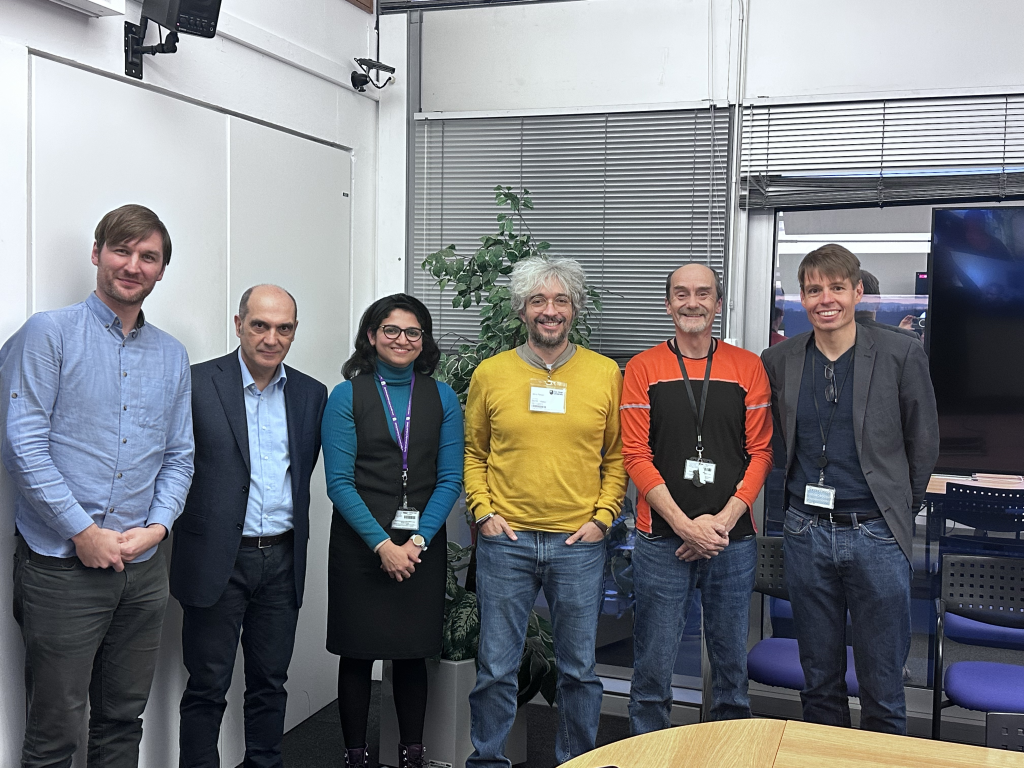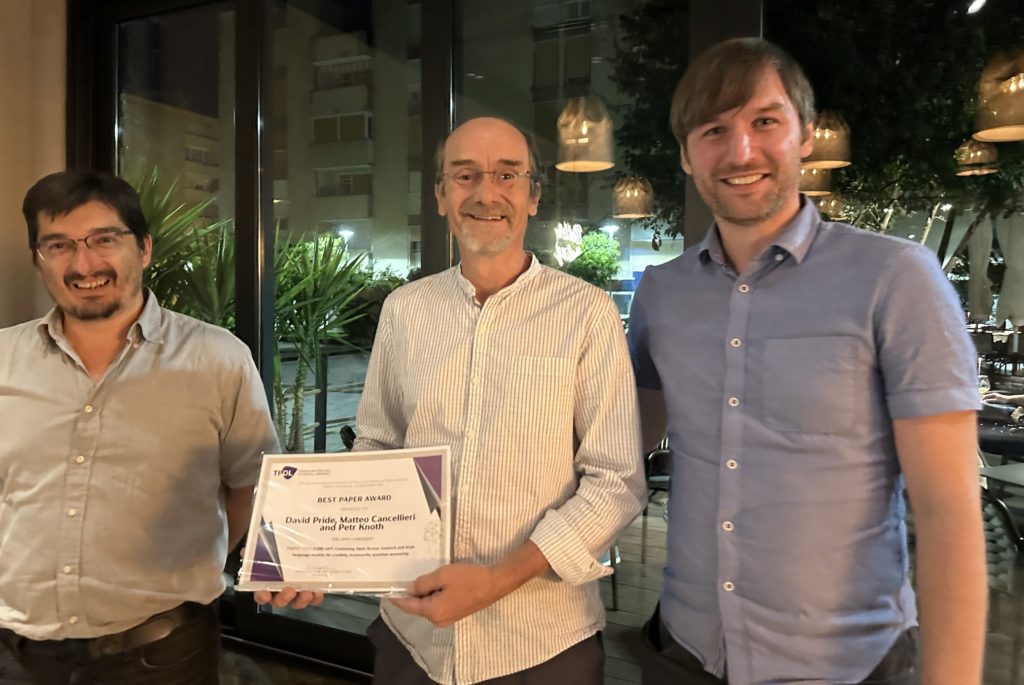CORE’s unique position with a global view of all open repositories enables us to work closely with its member organisations to develop and deliver tools that benefit repositories and repository managers. CORE recently introduced the new CORE Dashboard Versions and Duplicates module which provides a simple interface for identifying versions and duplicates in a repository. The system identifies different versions of articles and enables side-by-side reviewing. The different versions can then be marked using the widely used NISO Journal Article Versions (JAV) taxonomy. You can read a full overview of the new module in this recent blog post.
CORE introduces comprehensive new guide for Data Providers
For a data provider, being indexed by CORE is a straightforward process as indexing is done via OAI-PMH which is a standard protocol for repository interoperability. Most common repository platforms such as EPrints, DSpace or Open Journal Systems (OJS) support OAI-PMH. There are however several additional stages that can be undertaken to ensure the repository is best configured to enable CORE to index the repository’s content to maximum effect.
In an ongoing effort to help our Data Providers, CORE has introduced a detailed new guide that provides a wealth of information for repository managers and others. The new guide covers everything including how the repository should be configured for OAI-PMH. It is, sadly, a fairly common problem that the OAI-PMH endpoint of a repository is misconfigured or not functional. This can occur even when other functionalities of the repository appear to be working without issues. This has a huge impact on how visible the repository is to the outside world, and subsequent ramifications for the discoverability of its content.
CORE presents at UKRI workshop on research article PIDs and their role in the UKRI OA policy
In November, there was a whole-day workshop held at the headquarters of United Kingdom Research and Innovation (UKRI) in London on the topic of article-level persistent identifiers (PIDs) in the context of the UKRI OA Policy. There were representatives from HEIs, UKRI, and scholarly services providers, including Crossref and Cosector (host repositories). Professor Petr Knoth, together with Dr George Macgregor from the University of Glasgow, gave a presentation on the use of article-level identifiers in repositories.
CORE celebrates PhD. viva success for Suchetha Nambanoor-Kunnath
The whole CORE team were delighted last week when our very own Suchetha Nambanoor-Kunnath successfully defended her PhD thesis, titled: “Language Models for Citation Classification”. Her PhD topic focused on large language models for citation classification and how this can impact several areas including research evaluation, literature discovery and summary generation.

Suchetha’s panel was chaired by Prof. Bart Rienties, while Professors Enrico Motto, from KMi, and Silvio Peroni, from the University of Bologna, were her two examiners. Prof. Silvio Peroni commented that he was particularly impressed with the literature review, which was published as a stand-alone piece of work in the Journal of Qualitative Scientific Studies this past December.
Identifying and extracting authors’ Rights Retention Statements from full text academic articles
CORE has been working closely with our member institutions to co-create the design and functionality for a new module that can assist with the discovery and management of authors’ Rights Retention statements for published works.
The problem
A Rights Retention Statement is a declaration by an author that they retain certain copyright rights to their scholarly work, even when they sign a publication agreement with a journal publisher. This statement is often used to ensure that authors can comply with open access mandates from funding agencies, such as those under Plan S, which require that the research they fund be made freely available to the public. Under Plan S, the Rights Retention strategy is a significant aspect because it aims to ensure that authors retain copyright on their articles, even when they publish in subscription journals.
US Repository Network launches pilot with CORE to enhance discoverability of Open Access content in repositories.
An interoperable and well-functioning network of repositories is an essential component of US national research infrastructure and will play a crucial role in creating a more open and equitable global scholarly communications system. With the advent of the recent OSTP Memorandum requiring Ensuring Free, Immediate, and Equitable Access to Federally Funded Research, there is a need to help repositories identify tools and practices to ensure that they can become an effective compliance option for this policy
UKCoRR Members’ Day – CORE Panel Session
The UKCoRR Members’ Day took place on November 13th and, at very short notice, was held online due to the ongoing technical problems currently being experienced by The British Library, who were the original hosts for the day long event.
Our panel session, entitled “CORE, repositories and supporting UKRI OA Policy” saw substantial participation with more than 120 people from U.K. HEIs in attendance. The session opened with a presentation from Professor Petr Knoth, Head of CORE. This presentation detailed CORE’s recent advancements and developments planned for the coming months, with the focus on how the tools and services being built by CORE can best serve the repository communities’ needs, with particular regard to the UKRI’s Open Access policy.
SoFAIR: The Open University to coordinate new international project to facilitate the reproducibility of research studies
We are pleased to announce that the Open University has just been awarded a new research grant in the international CHISTERA Open Research Data & Software Call which aims to enhance the discoverability and reusability of open research software.
Open research software and data are pivotal for scientific innovation and transparency, but are often not cited as first-class bibliographic records. Much of these software mentions therefore remain concealed within the text of research papers, hampering their discoverability, attribution, and reuse. This, in turn, makes it harder to reproduce research studies. The SoFAIR project (from Making Software FAIR) aims to address this critical issue by enhancing the management of the research software lifecycle and ensuring research software and data adheres to the FAIR (Findable, Accessible, Interoperable, and Reusable) principles. The project will build on the existing capabilities of the open scholarly infrastructures operated by the project partners. SoFAIR is a €499k international project coordinated by (1) The Open University in partnership with (2) INRIA, France; (3) Brno University of Technology, Czech Republic; (4) the Polish Academy of Sciences (PAN), Poland; and (5) The European Molecular Biology Laboratory’s European Bioinformatics Institute (EMBL-EBI), United Kingdom. SoFAIR is funded under the 2022 CHIST-ERA Open and Reusable Research Data and Software (ORD) call.
CORE Team wins Best Paper award at TPDL2023
The CORE team were at The University of Zadar in Croatia last week for the 27th International Conference on the Theory and Practice of Digital Libraries (TPDL) where they were presented with the Best Paper award for their submission entitled ‘CORE-GPT: Combining Open Access research and large language models for credible, trustworthy question answering’

David and Petr accepting the award at the conference dinner
The paper’s authors; David Pride, Matteo Cancellieri and Petr Knoth are incredibly proud to have their work recognised in this way at this prestigious international conference.
Detecting duplicate records and manuscript versions in your repository
There are many reasons why a repository may end up with multiple copies of an article, for example, having the author’s original manuscript and the final post-review copy is a common scenario of near-duplicate content. Another example might be when multiple co-authors deposit the same manuscript without being aware of each other. Detecting (near-)duplicates and distinguishing them from different versions of the same article is both challenging and time-consuming. We have seen that a typical repository will have hundreds of duplicates and near-duplicate records, signifying the scale of this issue.
